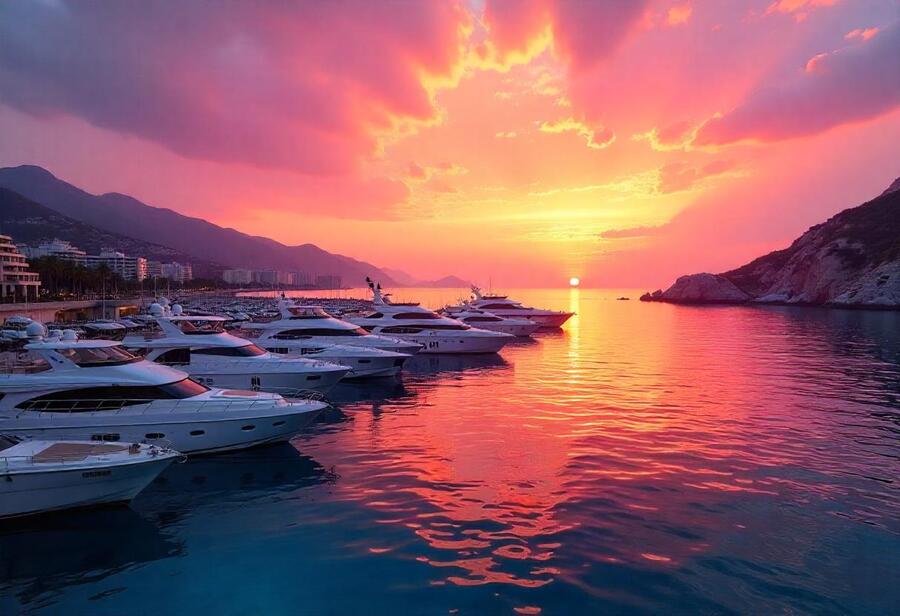Monday, July 7, 2025
Marbella, Spain’s celebrated jewel on the Costa del Sol, is preparing for a surge in affluent Arab travelers this summer, even as uncertainty lingers due to geopolitical tensions and airspace disruptions in the Middle East. As the luxury tourism capital of southern Spain, Marbella is once again drawing high-net-worth guests from the Gulf Cooperation Council (GCC) nations, driven by its elite hospitality, exclusive shopping zones, and Mediterranean charm.
Despite early concerns about travel delays, regional instability, and temporary cancellations, expectations remain high for strong arrivals in July and August—the peak of Marbella’s summer season.
Enhanced Air Connectivity from the Gulf Spurs Optimism
Málaga-Costa del Sol Airport, the primary international gateway to the region, is operating five direct air routes to key destinations in the Middle East for the summer of 2025. These connections have become essential to supporting high-end tourism in Marbella, especially for travelers from countries such as Saudi Arabia, Kuwait, the United Arab Emirates, and Qatar.
The conclusion of Ramadan earlier in the spring—between February 28 and March 29 this year—acted as a trigger for early travel from younger visitors in the Gulf. This pre-season movement, followed by the main holiday push in July and August, is consistent with annual patterns. Families in the region typically plan their vacations around school holidays and soaring summer temperatures back home, which makes Marbella’s breezy climate and coastal lifestyle particularly attractive.
A Smaller Market with Outsized Economic Impact
Although Arab tourists represent a smaller demographic compared to the massive influx of British and domestic Spanish visitors, their contribution to the local economy is far more significant due to elevated spending levels. In Marbella, Arab visitors are synonymous with high-consumption luxury tourism, particularly in exclusive districts like Puerto Banús.
This famed marina and shopping destination has long been associated with designer labels, fine dining, and elite yachting culture—an environment that resonates with Gulf travelers. Since the 1980s, Marbella has earned a strong reputation among GCC elites as a summer sanctuary, and over recent years, this bond has only strengthened with the return of second-generation families viewing the region as their seasonal home abroad.
Luxury Hotels Realign for Arab Market Dominance
In anticipation of rising summer demand, Marbella’s premium hotel sector is realigning its offerings to accommodate the preferences and expectations of the Arab market. Five-star properties across the city are reporting that visitors from the Gulf make up one of the top customer bases during the high season.
Booking behavior for 2025 has shown more caution due to uncertainty in the Middle East, with many travelers delaying their final decisions or adjusting plans at the last minute. Despite this, luxury hoteliers expect a late but strong wave of arrivals through July and August. Industry projections suggest that Arab travelers will account for roughly 25–30% of total summer occupancy in upscale properties.
These visitors typically reserve top-tier suites or entire floors, favor extended stays of seven to ten days, and request tailored services that reflect their cultural preferences—ranging from Arabic-speaking staff to private dining and concierge arrangements.
Rising Demand at Marbella’s Elite Resorts and Villas
Luxury resorts and branded lifestyle properties across the region are also experiencing solid demand growth from Gulf markets. Some of the most iconic hospitality names in Marbella have reported up to a 10% increase in bookings from the Arab world compared to last year. Average daily rates in the upper segment have surpassed €2,000 per night, underscoring the level of exclusivity that this segment demands.
Newly launched resorts and high-end beach clubs in the city have likewise seen increasing inquiries and reservations from the Middle East. Some establishments estimate that Arab clientele now make up nearly 20% of their summer guests—driven by rising brand awareness and word-of-mouth among affluent families in the Gulf.
Puerto Banús: The Center of High-Spending Travel
Puerto Banús continues to serve as the epicenter of retail and entertainment for Arab travelers in Marbella. Post-pandemic trends reveal a near doubling of luxury spending in the area compared to 2019, with a 195% surge recorded among Middle Eastern visitors.
Studies show that the average Arab tourist in Europe spends approximately €59,000 per trip. Marbella has joined the ranks of elite cities like Paris, Milan, and Monaco, all recognized as shopping havens for GCC residents. In Puerto Banús, fashion and leather goods dominate sales, and many stores report individual purchase receipts averaging €1,000 or more per day.
Even with a slightly quieter early season, expectations remain high for sustained retail momentum as July progresses. Local retailers have adapted to fluctuating travel patterns by enhancing service experiences, extending business hours, and catering to luxury shopping behaviors specific to Gulf consumers.
Mixed Sentiments Among Local Businesses as Season Begins
Although the region remains popular, early indicators from local vendors suggest a mixed start. Some boutique owners and retail staff have noted fewer Arab customers in the initial weeks of summer 2025. Reasons include global travel hesitations, political uncertainty, and the trend toward last-minute bookings.
Yet others point to returning elite families and consistent spending behavior among those who have already arrived. These travelers continue to favor high-end fashion, personalized service, and discreet yet extravagant consumption, especially in historic city zones and exclusive beachfront properties.
A Lasting Connection with Gulf Travelers
Despite short-term fluctuations in visitor numbers, Marbella’s foundational appeal among Arab tourists remains intact. The city offers a seamless mix of privacy, luxury, Mediterranean leisure, and familiarity—making it uniquely positioned to attract repeat visits from the Middle East.
The growing number of Gulf nationals who consider Marbella their second home is a testament to the destination’s long-standing cultural and economic link to the region. As the summer progresses and travel confidence rebounds, Marbella is expected to welcome a fresh wave of high-spending Arab travelers who see it not only as a vacation spot but as an extension of their lifestyle abroad.
«Enjoyed this post? Never miss out on future posts by following us»
